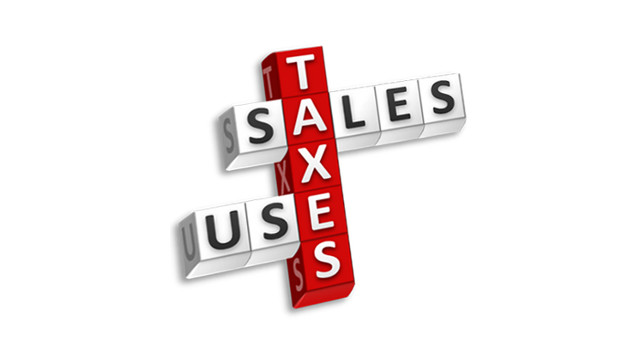By Tim Roden.
Sales tax management – and the associated sales tax compliance responsibility – has never been easy. With technology continuing to quickly evolve, small- to medium-sized businesses are feeling increased pressure to stay on top of those requirements without overlooking other key company priorities.
When employees are tasked with maintaining sales tax compliance, but are neither trained tax professionals nor have sales tax as a core job responsibility, a toll will be taken on businesses and workers alike.
Sovos surveyed 250 individuals with sales tax management/administration responsibilities at their organization. Nearly 80% of respondents reported that they work at companies earning less than $10 million or between $10 million and $25 million in annual revenue. Respondents expressed concern and frustration in current processes, with some wondering if it may be time to seek other employment.
However, utilizing the right sales tax technology can help ease the compliance burden on employees in a few key ways.
Efficiently meet evolving sales tax requirements
As of December 31, 2021, there were 22,688 political subdivisions (states, counties, cities) in the United States. Of those political subdivisions, sales tax currently exists in 12,472 of those locations. This includes 44 states (along with Washington D.C. and Puerto Rico), 2,215 counties, 7,883 cities and 2,328 districts. That is a lot to keep track of – especially if SMBs are utilizing manual workflows.
Additionally, Sovos tracked 523 sales tax changes from July 2021 to April 2022. For July 2020 to June 2022, there were 640 sales tax changes. Rules and rates can change quickly, and when paired with greater oversight and enforcement, businesses selling across multiple jurisdictions will likely have a more difficult experience.
Less than one-third of respondents said their business was able to update sales tax in hours, which could be a long time in the sales tax world. Changing regulations and even sales tax holidays can all put extra pressure on organizations to keep pace.
Losing a sale/customer because transactions cannot be correctly processed and incorrectly processing a transaction with the wrong rates (and the potential fallout) were respondents’ top organizational fear when it comes to sales tax.
This can put companies in a tricky situation: do you risk losing a sale because you cannot account for the most current sales and use tax or do you process the sale anyway, even if you know the sales tax is wrong? If you do the latter, it could lead to hefty fines or audits. Nearly 80% said generating an audit or facing a financial penalty was their biggest fear if there is a mistake when remitting sales tax. And 18% reported that losing the confidence of their manager or getting fired was their number one worry.
Prioritize and streamline workflow
Our survey found that 83% of those surveyed said automating their organization’s tax management process would make them happier in their current role. The Great Resignation is very real, and the current job market could be an opportunity for employees to find jobs that let them leave their least favorite responsibilities behind.
Furthermore, 62% of respondents stated their organization adopted new technology or systems in the past two to three years to combat the growing complexity of sales and use tax. Organizations may be facing a lack of training on new systems or a lack of effectiveness the new systems have in managing the complexity of sales and use tax.
The 2018 South Dakota v. Wayfair, Inc. Supreme Court decision greatly expanded organizations’ nexus footprints. States are still scrambling to properly meet the new regulations to maximize income owed. Additionally, regulators want to close the tax gap and there is increased investment in digitization to do so. Now more than ever there are the technological capabilities to expedite notices, audits, penalties and fines. SMBs are not immune from that scrutiny and businesses need to ensure that their employees can meet the challenge without becoming overwhelmed.
This is when cloud-based sales tax solutions can benefit. Real-time updates help ensure compliance, giving businesses the peace of mind that regulation changes are always accounted for.
Lessen the reliance on IT
Utilizing the right sales tax technology can also help businesses be less reliant on their IT teams. Over half of those surveyed said they are seeing a strain on IT and other resources, with 13% reporting that sales tax obligations lead to a stressful workplace and employee churn. Additionally, 35% of respondents said that increasing sales tax complexities distract from core business priorities.
The majority of SMBs can benefit from a new approach to sales tax technology – approximately two-thirds of those surveyed said their current sales tax management approach requires some level of IT assistance. Businesses will run more efficiently when all departments can focus on their main goals, and not be spread too thin.
But is it really that bad? Our survey also asked what employees would rather be doing than tackling sales tax management:
- 63% would rather go grocery shopping
- 51% would rather do laundry
- 39% would rather go to the dentist
- 33% would rather sit in traffic
While running errands and doing household chores are likely not to disappear anytime soon, neither are sales tax compliance requirements. But there are ways to eliminate the latter. When internal teams can automate sales tax calculations, efficiently track sales tax rates and rules and properly manage exemption certificates, it will reduce internal pressures and improve overall business efficiency. Working with the right partner can shift the regulatory compliance burden off your employees, allowing them to refocus on your core business priorities.
=====
Tim Roden is solutions principal, sales and use tax, at Sovos.
Thanks for reading CPA Practice Advisor!
Subscribe Already registered? Log In
Need more information? Read the FAQs




